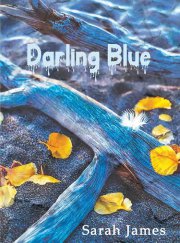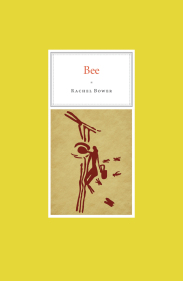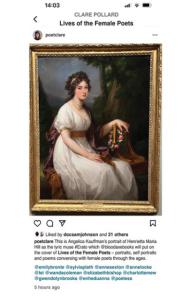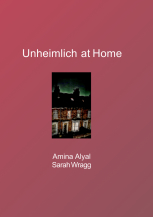
2019
AUGUST CONTRIBUTORS
Cecile Bol, Robert Cooperman, George Franklin, Nels Hanson, Mary Beth Hines,
Glenn Hubbard, Carolyn Martin, Ronald Moran, Terry Savoie, J R Solonche,
Jamie Sullivan, Bruce Taylor.
CECILE BOL
Distraction
I told myself to go write
a poem yet instead got trapped
on BuzzFeed reading about ass
wiping techniques and shit
how about you, when you wipe
do you stand or sit?
yes, it's a thing – moreover, it appears
some of us don't wipe at all
mostly men (that goes without saying)
allowing their butts to leave marks
like toddlers clutching melting Milka bars
and we all wonder how
they have girlfriends – even wives –
and don't their bums itch?
but no need to tell you nothing
beats poetry quite as well as
reading shit about shit
Cecile Bol lives in the north of the Netherlands. She is the co-leader of a local English poetry circle. Her English work has appeared (or is due to appear) in The Blue Nib, impspired, Picaroon Poetry and anthologies from The Frogmore Press and Earlyworks Press. More on www.cecilebol.nl.
Back to POETRY ARCHIVE
ROBERT COOPERMAN
Mrs. Cratchit Visits Her Younger Son’s Grave
Despite the old man’s pounds,
my little lamb died, died with a smile
haloing his face: to make his going even worse,
for how can I believe in a god so selfish
he has no thought for a mother’s feelings?
Through the long agony of one frowning
specialist after another, Mr. Scrooge paid,
and never stopped his torrent of good cheer
that grated on me like a rusty hinge.
And when Tim rasped out his last breaths,
the old man insisted on attending, sobbing
when he wasn’t clapping my poor Robert
on the shoulder with words meant to buck him up
like a bracing walk through Green’s Park,
or holding my hand, as if his talons—
that used to rip pounds, shillings, and pence
from men and women he knew were too poor
to repay him—were soft and consoling
as the fingers of Jesus’ Mother.
I preferred him merciless as a wolf.
Then, at least, you knew what to expect
from the hawk-nosed devil: nothing;
but his cheerfulness, his tears for Tim,
and his speeches of consolation cloyed
like a cup too much sugar in rum punch.
He knew Tim only in those last months,
while Robert, the children, and I had seen him
into this world, were lifted by his high spirits,
and grieved hard as granite for his dying.
Mr. Scrooge takes my hand, while rain
cold and sharp as the Hard Angel’s scythe
turns my mourner’s weeds into a soggy web.
Did I ask him to accompany me
to Tim’s grave? Did I? Did I?
Robert Cooperman's latest collections are The Devil Who Raised Me and That Summer. Forthcoming is Lost On The Blood Dark Sea.
Back to POETRY ARCHIVE
GEORGE FRANKLIN
A French Novel
Let me tell you about a book I read in high school.
It begins with a man who’s not sure when his mother died.
See, you’ve already guessed it—set in Algeria
In the years before independence. The man
Has a beautiful girlfriend—at least I remember it
That way—but he doesn’t care much about her.
On Sunday, he cooks an omelet on a gas stove
And drinks a glass of wine. Then, he shoots an Arab one day—
I don’t think you’re supposed to understand why. He
Just keeps talking about the sun as though it were
The reason, but no one can make sense out of that so
He’s sentenced to death after witnesses describe
How he didn’t cry at his mother’s funeral. In high school,
I read he was an existentialist. Looking that up
In the dictionary wasn’t a lot of help. Merriam Webster
Defined masturbation back then as “self-abuse.”
I did get it, though, that nothing much mattered to him,
And he shouted at a priest at the end. The funny
Thing is that I wanted him to get away, not to
Die in front of the howling crowd he said
He wanted at his execution. The word “anti-hero”
Meant nothing to me. I was fifteen and didn’t
Know yet that the world is made up of other people,
That no one’s story is separate from anyone else’s.
The Arab may have had a sister who’d made dinner
For him, something with chickpeas and spices that
Would go uneaten. And Marie, beautiful Marie,
May have told a friend in a café about how self-absorbed
Meursault had been, what a bad lover, how
He’d never really listened to her, how she planned
To move to Nice someday, open a shop. And,
In the morning after the guillotine, the priest, whose
Name we don’t know, may have spooned rose petal
Jam onto a piece of bread, sipped café au lait
From a blue bowl, and thought how lucky he was
Not to be the one who was dead.
In Our Stories
My son’s in his room watching videos
And writing a novel about a bounty
Hunter in another galaxy who
Likes anime and can’t be killed. Simon
And I share this house, meaning I wash the
Dishes, he helps out with the dog. Every
Night since he was six, we’ve gone for a walk,
Crafting stories together about elves
And trolls, warriors and thieves, and gods who
Don’t care much what happens to people. A
Hundred generations of heroes and
Villains have been born and mostly met bad
Ends. The elves are still arrogant, greedy—
The trolls only marginally smarter
Than at the beginning. Simon asks each
Night about what’s happened in the news. He
Doesn’t like to read it for himself. I
Can’t say I blame him. He’s made a world where
Nothing much intrudes. He makes himself a
Pizza, some chocolate milk and plays indie
Video games I can’t follow. Simon’s
Four inches taller than I am, at least,
And his hair’s grown halfway down his back. He
Doesn’t go to work yet or drive a car,
And he’s got no idea how to talk
With girls his age. He’s worried that I’ll die
Before he learns to take care of himself,
But he walks to the supermarket and
Buys parmesan cheese, pasta, tomato
Sauce, Oreos, and a half-gallon of
Milk—everything he needs. His mother and
I got divorced three years ago. In our
Stories, the gods play less and less a part.
George Franklin is the author of two poetry collections: Traveling for No Good Reason (winner, Sheila-Na-Gig Editions competition in 2018) and a bilingual collection, Among the Ruins / Entre las ruinas, translated by Ximena Gómez (Katakana Editores). He practices law in Miami and teaches poetry workshops in Florida prisons.
Back to POETRY ARCHIVE
NELS HANSON
The Promise
Did you see the blue
river, she asked, running
deep and pure, unhurried,
never slowing? I caught
a glimpse, I said, only
a moment or two. Was
there a boat, she asked,
blue with a blue sail?
No, I said, no boat, no
sail. One will come, she
said, blue as blue water.
When? Wait patiently.
Pluto
Pluto was a planet, then a dwarf
and now scientists in the journal
Icarus believe the Sun’s farthest
satellite is a giant comet or made
of countless comets and asteroids
from the Kuiper Belt past ringed
blue Neptune’s orbit. Once Pluto
was King of the Underworld and
sailing rocks of ice with nitrogen
were gathered in a realm like one
where lost souls rest from places
not resembling home, the living
with the same revolving seasons,
old hate and love, murder, a frail
peace, eight billion of us breathing
by 2020. Probes provide the data,
the European Rosetta spacecraft
launched in 2004, NASA’s New
Horizon in 2006, eight years to
reach a frozen land circling our
star on an inclined plane aslant
the solar system. A lone voyager
repeats a path elliptical, at times
nearer the Sun than its neighbor,
Sea God with Triton and dozen
smaller moons, the dim afterlife
brighter a while but still almost
five billion miles from Earth.
Nels Hanson grew up on a small farm in the San Joaquin Valley of California and has worked as a farmer, teacher and contract writer/editor. His fiction received the San Francisco Foundation’s James D. Phelan Award and Pushcart nominations in 2010, 2012, 2014 and 2016. His poems received a 2014 Pushcart nomination, Sharkpack Review’s 2014 Prospero Prize, and 2015 and 2016 Best of the Net nominations.
Back to POETRY ARCHIVE
MARY BETH HINES
Salamander
At the bus stop drenched
in cold April rain Mother
unfurls her yellow
umbrella, a swaying
canopy of goldenrod
and bluebells, and invites
a dripping girl to join us
as we wait for the 505 bus
to sweep us from the curb
into the cool dark, to hurl
us into the story spilling
like confession from the woman
who in the half-light looks
like a young Dorothy Day
and Mother cannot
turn away even though
she wants to
cover her eyes
instead she slips off
her coat, drapes the girl,
bares her own thin skin
to soak in, exhale, the wrenching
bus air like the long-
tailed salamander I saw
through glass at the zoo years back –
its wet eyes, the spotted
full-body freeze
when I caught it
beneath the dome
of my fluorescent
hazel gaze.
Mary Beth Hines
is a writer following a long career as a project manager. An
active participant in Boston-area workshops, her poetry has recently been published, or is forthcoming, in journals such as the Crab Orchard Review, Gyroscope Review, the Aurorean, Literary
Mama, and Sky Island Journal, among others.
Back to POETRY ARCHIVE
GLENN HUBBARD
From the Cradle to the Grave
“...set the ethical terms on which Britain’s new social contract was founded.”
Sandra Lewis, aged 11,
ran towards the bathroom, ran along the crowded
corridor crying, hoping to find some toilet
paper to stuff between her crotch,
not having what some might call sufficient courage
to ask a member of staff for money
to purchase the pads her mum's wages
did not run to, the pads that were not
on the shelves of the food bank run by
that nice Reverend Waters in the chapel
next to Tesco, from where Sandra still
had not stolen what she so needed,
not being what some might call brave enough
[The Reverend Waters, aged 63,
understandably, was very grateful
to the sympathetic store detective,
who was able to persuade
the aisle manager not to take
the matter any further when
she tried to steal sanitary items
from Tesco, inexplicably.]
when,
half-blinded by her tears, she ran straight
into Warren Hobbs, aged 8, who was carefully
carrying an apple to his little sister, having slipped
it into his pocket unbeknownst to Ms Smith,
who had fetched him a sandwich and some fruit
when she saw him holding his stomach and, after
getting him sat down and giving him some time
to dry his eyes, had managed to prise out of him
the revelation that he had not eaten anything
since the day before, when Mr Brown, who
had still not been able to speak to Ms Smith,
had fetched him a sandwich and some fruit.
[Mrs Hobbs, aged 25,
had not got to the food bank
having been stopped for stealing
menstrual pads, again, in Tesco.]
Warren Hobbs
dropped the apple, which bounced and
then travelled under a table. And Sandra
stopped without thinking, thinking she
might be able to help. But now, down on
all fours, she can feel Warren's eyes, wide
with surprise, fixed on the blood on her
thighs. And she cries. Harder.
Still surprised by his apparent ability to write poems that people enjoy, Glenn Hubbard has been writing since 2012. His work has been published in a number of poetry magazines and last year one of his poems was submitted for the Forward Prize. Glenn has lived in Madrid since 1987.
Back to POETRY ARCHIVE
CAROLYN MARTIN
How to Write a Great Country Song
three chords and the truth and throw in
half-dozen sweaty beers, a red guitar,
a slow-talking gal who sets you dreamin’
how her breasts would feel if she was willin’
and you were so inclined when your fingers
find the chords and you work your rhymes for curves
and heft, beauty marks, and nipples risin’
long before her clothes slide off and how
you’ll rope her in with strings of half-slant lines
that make it clear tonight is all about
a few more swigs and sex on worn-out sheets
with nothin’ more in mind but then she ups
and leaves with it was mighty nice and how
she might have stayed but she won’t pay the price
for bein’ one more one-night nights you fret
about in three-chord sets and so you trash
your rhymes and case your silenced red guitar
and hear a country song struttin’ out the door.
From associate professor of English to management trainer to retiree, Carolyn Martin has published poems in journals throughout North America and the UK. Her fourth collection, A Penchant for Masquerades, was released by Unsolicited Press in 2019. Find out more about Carolyn at www.carolynmartinpoet.com “How to Write a Great Country Song” was previously published in The Poeming Pigeon, the Music Issue, 2017.
Back to POETRY ARCHIVE
RONALD MORAN
Connections
I'm talking on my land phone with a friend
about
nothing important, and she says to me, Uh oh,
I hear
my doorbell ringing, and I'd better take care
of business.
What business? Why? I'm thinking, Is she
really
the poster child for American connections?
We want
to know what happens next, when and what
do I have
to do or say to get beyond my next next? As in,
I'm talking
on my land phone, my cell phone keeps ringing,
although
I do not want to talk to him, I must answer, since,
well,
I could be missing something big, even at my age.
Might
he be calling to tell me his svelte cousin in Atlanta,
a luscious
widow, lonely like me, is looking for a new guy
to beef up
an evening on her leg of the eternal journey,
something
better, if only momentarily, like a meteor just
abandoned
by a comet, on its way to the heaven of comets,
lighting up
our cosmos, if only fleetingly, and that is just
what
I want to happen, a flight of radiance, and even
though
it may not last, it is finally here, and, yes, still
glowing.
Ronald Moran has published 13 books/chapbooks of poetry and has poems coming out soon in Tar River Poetry and The South Carolina Review. His work is archived in two university libraries.
Back to POETRY ARCHIVE
TERRY SAVOIE
For the Resident Mourning Doves
Good Day, I say, speaking to the whistling wings
of those two mourning doves
who've flown off to settle on power lines above me
& balance there while cooing & muttering to each other
about matters that matter most for them, their remarkable
good fortune in the sun rising once more
& the sheer delight they take in lingering a moment to attend
to this singular event more closely.
The doves, a bonded pair certainly, have monitored the sun's travels
& my own daily habits as well
for the better part of two years so that they know me now
both outside & inside as I, in turn, believe
I know them. They seem keen, this wintering couple, to endure
those bitter months ahead, relying again on
my magnanimous gifting hand with its daily helpings of loose seed
to keep their feathers & flesh together,
bobbing their heads to the affirmative above thin, delicate necks
always craning hard in my direction,
their pebble-black eyes set to anticipate my every move & my goodwill
for their existence. They don't
fully realize what's ahead, but they do know I am here
waiting to hear again
their telltale whistling wings as I carry out my bag of seeds.
They attend the rising sun that wakes
each of us, opening wide its fist from the east to hit the house face first
as the three of us concentrate
fully on this apparent Now that's here, naked, cold as it is
at our feet.
Terry Savoie has had nearly four hundred poems published in journals and anthologies over the past four decades. These include poems in Poetry, The American Poetry Review, North American Review, Ploughshares and The Iowa Review. A selection, Reading Sunday, won the chapbook competition and was published by the Bright Hill Press.
Back to POETRY ARCHIVE
J. R. SOLONCHE
The Library Has a New Librarian
The library has a new librarian.
Her name is Emma. Emma is tall.
Emma is slender. Emma has short
dark hair. Emma has very beautiful eyes.
Emma has large, very beautiful eyes.
Emma has large, very beautiful hazel eyes.
The first time I saw Emma, I wanted to say,
“Emma, you have beautiful eyes.” I didn’t.
I didn’t have the nerve. I said, “Thank you”
and left with my book. I didn’t even say
“Emma” because I didn’t have the nerve.
The second time I saw Emma, I wanted
to say, “Emma, you have beautiful eyes.”
I didn’t. I didn’t have the nerve. I said,
“Thank you” and left with my book.
The third time I saw Emma, I wanted
to say, “Emma, you have beautiful eyes.”
I did. I had the nerve. I said, “Emma,
you have beautiful eyes.” “Why, thank
you,” she said. “You’re welcome,” I said.
I lost my nerve. We were both happy.
Lethe
What’s on tap? I asked the barmaid.
The barmaid gave me the beer menu.
I see you don’t have the one I want.
What’s that? she asked. Lethe, I said.
I never heard of Lethe, she said,
pronouncing it leth. It’s Lethe, I said.
It’s the name of a river in hell.
Oh, she said. Isn’t that the Styx?
she said, pronouncing it stikes. That’s
a different river, I said. The Styx is
the one you cross to get to hell,
the underworld. The Lethe is the one
you drink from once you’re there
to wash away all your memories, I said.
You forget everything about the upper
world. Oh, she said. I guess that means
we do have it on tap. All the beers do
that, make you forget, don’t they?
she said. Like Lethe IPA, Lethe amber
ale, Lethe stout, Lethe red, Lethe wheat?
She was pronouncing it right. Yes, I said.
You’re absolutely right. I’ll have a Lethe
stout. She wasn’t as dumb as she looked.
J.R. Solonche is the author of Beautiful Day (Deerbrook Editions), Won’t Be Long (Deerbrook Editions), Heart’s Content (chapbook from Five Oaks Press), Invisible (nominated for the Pulitzer Prize by Five Oaks Press), The Black Birch (Kelsay Books), I, Emily Dickinson & Other Found Poems (Deerbrook Editions), In Short Order (Kelsay Books), Tomorrow, Today & Yesterday (Deerbrook Editions), If You Should See Me Walking on the Road (Kelsay Books), and co-author of Peach Girl: Poems for a Chinese Daughter (Grayson Books). He lives in the Hudson Valley.
Back to POETRY ARCHIVE
JAMIE SULLIVAN
Composition VII
“Hungry souls go hungry away.”
—Wassily
Kandinski
Nina was all light and swirl
in a lemony dress.
“I’m all breath,” she thought.
Arthur’s eyes studied the canvas,
gesso on his fingers, smear of ocher on his lip.
He had done enough of her nude.
So he painted her voice, a moth skipping through him
from bloom to bloom, or a warm
stream in the cool air.
But Nina wants to dance with Kandinski
in a ballroom in Minsk with an orchestra playing
and feel the shimmering cymbals,
and the violins riffling through her hair.
She wonders if he thinks in paint
as she sways with Kandinski among
the japonica and Chinese lanterns.
Could he paint time elapsing
or the music spiraling through the inner ear?
She had felt his brushes at play on her skin.
She wonders as she dines with Arthur
on sardines and olives on crackers
in the apartment on Skinker
with the Paris green door.
Jamie Sullivan is the author of Pack of Lies, forthcoming from Main Street Rag. His poetry has appeared in Flyway, The Naugatuck River Review, and The Briar Cliff Review among other journals and anthologies. He teaches writing and literature at Mount Marty College.
Back to POETRY ARCHIVE
BRUCE TAYLOR
“The good gardener plants for three, maybe four years from now.”
In a garden like that there’s
always too much to do.
The maple he should have
planted the day
his daughter was born
would have been by now
memento yellow.
And through the kitchen door
she should be stepping
to shake some white thing
or another and stand
just a moment just so
the hollyhocks would have
something lovelier to tower over.
And tiger‑lilies should be
flashing shamelessly orange
and late asters in their
final purple should be nodding
thick and heavily‑headed
against the garage he ought
to have painted last year,
or the year before last,
immaculately white.
“Wherever one gardens there is heartbreak.”
Working an autumn garden
it’s not hard to think about dying
when the thinnest, most delicate
of ices lingers all morning
here and there in the yellow grasses.
The sun on our back
throws what is before us
into a sharp relief,
snapdragon wither from
stem to bud and dahlia from
the ruined blossom down
fruits, leathery pods,
nuts and berries,
a blizzard of seed,
blights, rusts and smuts
the dry husks of the day
like a fire going out
from its center
burning clear at last.
“Every gardener knows the pleasures of a pile of catalogs and a chair
by the fire"
No need of many earthy
instructions here,
no thistle nor cursed soil
no regions bereft of summer
where hope is deferred
every expectation blighted.
No white flowers and lanterns at evening.
No mottled rustle and ruin of Autumn
leaves piled high against the door.
No charm wafted to a swarm of bees.
No perennial huddling
low against the bitter winter gale.
No Spring passed
in anxious doubts and fears.
No green and leggy anticipation
of some privileged ignorance of
the hungrier facts of life.
Bruce Taylor is retired, living in a small Wisconsin village, and is pleased to have had his work appear previously in The Lake, as well as in Able Muse, The American Journal of Poetry, The Chicago Review, The Nation, The New York Quarterly, Poetry, Rattle, and Writer’s Almanac. These poems appeared in “Taylor’s Encyclopedia of Gardening”, In Other Words, Upriver Press, 2014.
Back to POETRY ARCHIVE



